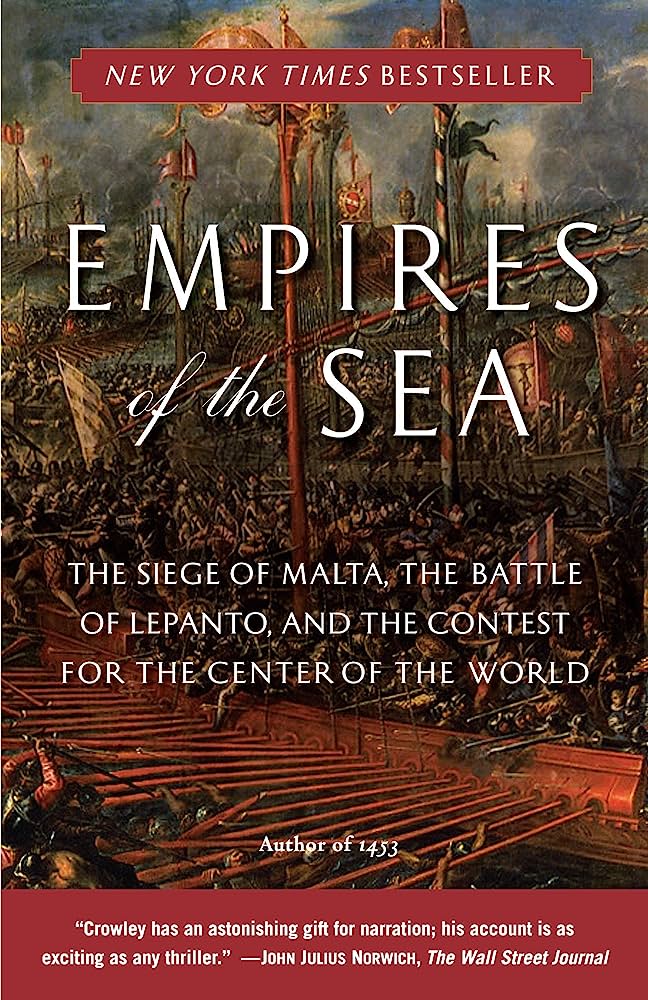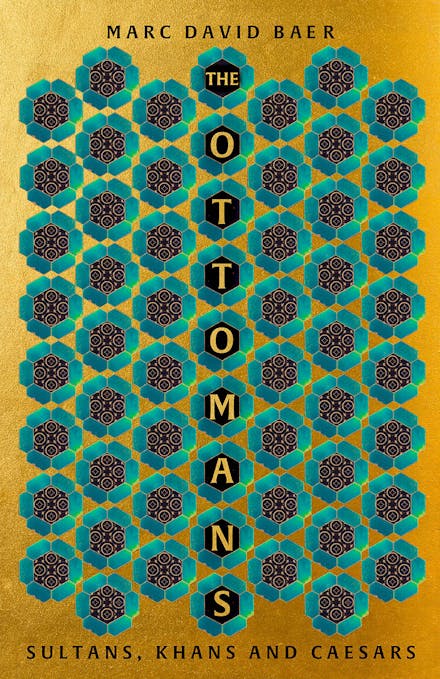|
Empires of the Sea
By Roger Crowley Published in May 2009 368 Pages Thibault’s Score: 4/5 Empires of the Sea is an account of the naval battles fought in-between Christianity and Islam in the early modern era. At the dawn of the 15th century, the Ottoman Empire was rapidly expanding. Constantinople fell in 1453. The Persians were defeated in 1514. The last crusader bastion - Rhodes - fell in 1522. The Hungarians were destroyed in 1526. The Ottoman end goal was the capture of Rome, and the creation of a new Islamic Roman Empire. The forces of Christianity were worried. Almost all of the major battles in the later half of the 1500s would take place on the Mediterranean Sea. The key players would be Habsburg Spain, Venice, Genoa, the various remnant crusader orders, and to a lesser extent France. This book first covers the Ottoman capture of Rhodes. It then goes on to explain the strategic considerations that went into Westward maritime expansion. Naturally, Crowley follows by giving terrifying accounts of the North African pirates in Ottoman service. Then come the three major battles of Malta, Cyprus, and Lepanto. What is fascinating is how fast the world was changing politically and technologically. Typically, I read about earlier periods, usually the Middle Ages. The world of the Middle Ages is technologically flat, and politically fragmented. However, the world of the early modern mediterranean is very different. First, the discovery of the new world completely changes the dynamics of European expansion. Technological improvements - namely in ship technology and gunpowder technology - completely transform the dynamics of individual battles. Maritime-land operations, such as the capture of coastal fortresses, are critical. Sieges last for months rather than years. Finally, Islam is no longer dynamic and innovative. For the first time, Muslims are falling far behind Europeans, mostly due to their tyrannical governments. I’ve read almost every book by Roger Crowley, and can confirm that he is one of my favorite historians. His books always manage to paint a vivid blood-curdling image of what seeing the battles in person might have been like. They are fast paced, manage to capture the essence of key characters, and perfectly walk the fine line between giving too much and too little context. I recommend this book highly to anyone who is looking for an easy introduction to the world of early modern geopolitics. You can likely pick up, and appreciate, this book without much prior historical knowledge. It will not give you revolutionary insights about the course of history, fate of modern nations, or even the early modern era - but it will entertain and inform you.
0 Comments
The Ottomans: Khans, Caesars, and Caliphs
By Marc David Baer Published in October 2021 560 Pages Thibault’s Score: 4/5 There are few civilizations that were more authoritarian, sexually degenerate, and genocidal than the Ottoman Empire. Whatever flaws its predecessors - the various Turkic Khanates, the Byzantines, and the Caliphates had - the Ottomans took to an extreme. By contrast, modern Turkey is an incredibly prosperous, safe, and clean place. This book really helped me realize how far Turkey has come in just one century. Weirdly enough, this book was intended as a defense of the Ottoman Empire. However, the information contained within is damning. Baer refutes the idea that the Ottomans were an authoritarian police state by highlighting repeated instances of brutal oppression; challenges the stereotype of Ottoman hypersexuality by recounting stories of Sufis with pierced penises openly begging for money in the streets; and promotes the idea that the Ottoman Empire was a tolerant society by retelling the history of 500 years of repeated genocide. One detail about the Ottoman Empire stands out to me - its particular strain of authoritarianism is surprisingly modern. Perhaps the modernity of its oppressive techniques is what Baer, likely an academic Western liberal, finds attractive about it. As far as I can tell, it was one of the first states that used tolerance as a tool to fight against reactionary opponents. By promoting religious minorities into high office; the Ottomans found people who would greenlight all centralizing and statist policies which would be opposed by traditionalist Muslims. By supporting various sexually degenerate Sufi orders; the Ottomans broke down the family values of troublesome minorities such the Arabs and Armenians. By creating a Sheik who determined what “was and wasn’t” Islamic, the Ottomans perverted the teachings of Islam to support their regime. After reading about other, earlier, Islamic societies I have developed a deep appreciation for Islam. The very aspects that attract me to Islam are the very aspects that repulse me from the Ottomans. Islam is a religion that explicitly restrains the power of the state, and explicitly promotes individualism. This view of Islam is the view of scholars such as Ibn Khaldun, of the Golden Age Abbasid Mutazila, and of various fundamentalist heretics like the Ismaili Shia and Kharijites. The Ottomans take the opposite approach. They created a new Islam that sanctioned all government actions. Islam went from a tool of small government, capitalism, and family values into an ideology that legitimized statism, centrally planned economies, and the nation. The Ottomans were one of the most evil regimes in all of human history. I would rank them up there with the Soviet Union, Nazi Germany, King Leopold’s Belgium, the Mongol Empire of Chinggis, and the various degenerate Chinese dynasties. This book - in its attempt to defend the Ottomans - proves my point. I would recommend reading this book if you want to learn more about Ottoman, Islamic, or Turkish history. Andy, if you are reading this, then I recommend this book to you in particular. |
Thibault SerletMost of my articles are book reviews, but I also write about many other topics. Archives
December 2023
Categories |


 RSS Feed
RSS Feed